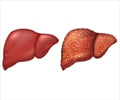World hepatitis day is observed on 28th July every year to create awareness of hepatitis, a disease that affects the liver. The theme for this year 2018 is ‘Test. Treat. Hepatitis.’
- World Hepatitis Day is observed annually on 28th July
- The main aim of the campaign is to raise public awareness on hepatitis (a disease that affects the liver) its causes, prevention, diagnosis, management, and treatment.
- This year the theme is ‘Test. Treat. Hepatitis.’
The liver is an important organ for metabolism and detoxification. Viral hepatitis is the inflammation of the liver due to viral infections.
Viral hepatitis B and C are significant health challenges, affecting nearly 325 million people worldwide. They are the main reason for liver cancer, leading to 1.34 million deaths every year.
To commemorate the World Hepatitis Day 2018, WHO and the Government of Mongolia will hold a series of events in Ulaanbaatar, Mongolia.
Main Objectives of the Campaign
WHO events and activities mainly aim to reach the following objectives worldwide:- To support and expand hepatitis prevention, testing, treatment and care services, with a specific focus on strengthening WHO testing and treatment recommendations
- To highlight the best practices and support universal health coverage of hepatitis services
- To encourage partnerships and funding in the fight against viral hepatitis
What Makes Hepatitis a Global Burden?
Hepatitis is on the rise as a global killer. Even though several measures have been made to curb the spread of hepatitis, the global toll of hepatitis cases appears to be mounting. This makes ‘Hepatitis a Global Burden.’- Hepatitis attacks the most vulnerable
- Viral hepatitis B and C are significant health challenges
- Viral hepatitis B and C are the main reasons for liver cancer
- Viral hepatitis causes serious diseases and also places a substantial economic burden on families
- Viral hepatitis has become a significant killer due to a lack of global awareness and attention
- Over the past 15 years, several people have been dying of viral hepatitis
- Simultaneously, people are becoming newly infected with hepatitis
- Early testing and treatment of viral hepatitis B and C can save lives
Facts and Statistics on Hepatitis
- Viral hepatitis B and C are significant health challenges, affecting nearly 325 million people worldwide
- Around 600,000 people die worldwide every year from hepatitis B and its complications, such as liver cancer
- Above 5 million Americans are infected with viral hepatitis
- Hepatitis B and C are the leading causes of liver cancer and liver transplants in the United States
- According to the Center for Disease Control and Prevention (CDC), 1.25 million Americans have already been infected with Hepatitis B virus, and more than 2 million Americans are chronically infected
- In the UK, nearly 215,000 people have hepatitis C
What is Hepatitis?
Hepatitis is an inflammation or swelling of the liver. There are five types of hepatitis viruses namely, A, B, C, D, and E. These types are of most important concern because of the burden of illness and death they cause and the potential for outbreaks and epidemic spread.Types A and E are responsible for the short-term or acute infection, whereas types B, C, and D cause long-term or chronic infection. Hepatitis B, C, and D lead to life-threatening complications such as liver cirrhosis, liver failure, and cancer.
What are the Causes of Hepatitis?
- Hepatitis A and E are commonly caused by ingestion of contaminated food or water
- Hepatitis B, C, and D usually occur as a result of blood-to-blood contact with infected body fluids such as blood transfusions or invasive medical procedures using contaminated equipment
- Hepatitis B and C can also be transmitted through sexual contact, although this is less common with hepatitis C
Common Symptoms of Hepatitis
- Jaundice, a condition where the skin or the whites of the eyes turn yellow as well as dark urine
- Light-colored stools
- Loss of appetite
- Fatigue that continues for weeks or months
- Fever
- Nausea
- Vomiting
- Stomach pain
Simple Ways to Fight Hepatitis
- Follow proper immunization schedule. Vaccines to protect against hepatitis A and B are available
- Contaminated water can spread hepatitis A and E. Access to clean water is not universal. So, make sure that you drink clean water. International travelers must always take special precautions to avoid an unsafe source of water
- Medical workers or health care providers should take precautionary measures to avoid direct contact with blood or blood products. Any tool or equipment that draws blood should be discarded safely or appropriately sterilized to prevent hepatitis C infection.
- Do not share personal care items which are used on a daily basis such as toothbrushes, razors, nail and hair clippers, and scissors
- Avoid unsafe sex. There is a greater risk of getting hepatitis C if a person has sexually transmitted disease such as HIV
References:
- World Hepatitis Day - 2018 - (http://www.who.int/who-campaigns/world-hepatitis-day/2018)
- World Hepatitis Day - July 28th - (https://www.cdc.gov/hepatitis/worldhepday.htm)
- Hepatitis Is On The Rise As a Global Killer - (http://www.humanosphere.org/global-health/2016/07/hepatitis-is-on-the-rise-as-a-global-killer/)
Source-Medindia
















